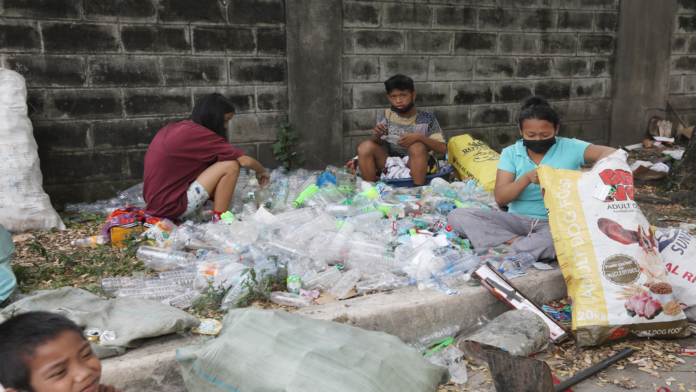President Ferdinand R. Marcos Jr. on Friday directed the National Anti-Poverty Commission (NAPC) to make sure that the anti-poverty programs are synchronized with the local government units’ (LGUs) initiatives.
On its official Facebook page, state-run Radio Television Malacañang (RTVM) shared a short video clip of the first NAPC en banc meeting convened by Marcos at Malacañan Palace’s Heroes Hall.
“President Marcos Jr. stresses the importance of identifying local communities that are most in need and the sectors that are most disenfranchised, as well as NAPC engaging with the concerned government agencies to synchronize the appropriate programs and services that will be provided,” according to RTVM’s Facebook post.
During the meeting, Marcos ordered the NAPC to “keep their ears open” by listening to local government officials’ suggestions since they know very well the problems in their respective communities.
Marcos said the LGU inputs could be used to identify the critical issues that the national government needs to address.
Marcos ordered the NAPC to identify the “problematic areas” that need government assistance.
He also stressed the importance of coordination among the national and local governments to combat the long-standing problem of poverty.
“So, those are the things, I think, that the NAPC should be doing,” Marcos said. “Then, engage natin lahat ng ibang departamento para (let us engage all other agencies so) the other departments can come in.”
During the meeting, Santos informed Marcos that the NAPC is targeting the completion of the National Anti-Poverty Action Agenda and the National Poverty Reduction Plan by September and October this year, respectively.
Santos also noted that the NAPC is eyeing the rollout of the Local Poverty Reduction Action Plan in 2024, which will be mainstreamed in all provincial development and fiscal framework plans and comprehensive development plans of LGUs.
He added that the agency has come up with the National Anti-Poverty Action Agenda, which will be aligned with the PDP 2023-2028.
“Since February this year, we conducted a series of consultations and workshops for the formulation of this plan involving all NGAs (national government agencies), leagues of LGUs and the basic sector. The NAPC secretariat is currently integrating all inputs and the draft shall be presented for approval in the next en banc,” Santos said.
Based on the RTVM’s Facebook post, Marcos and the NAPC discussed the alignment of all development plans to the Philippine Development Plan 2023-2028, as well as the formulation of the National Anti-Poverty Action Agenda.
Other issues raised during the meeting were the National Poverty Reduction Plan, guidelines on the preparation of the Local Poverty Reduction Action Plan; and conduct of the National Sectoral Assembly of the 14 basic sectors.
The first NAPC en banc meeting was attended by Cabinet secretaries and officials from majority of the 25 national member agencies, LGU leagues and sectoral representatives from the 14 Basic Sectoral Councils.
Created by virtue of Republic Act 8425 or the Social Reform and Poverty Alleviation Act signed into law on June 30, 1998, the NAPC serves as the coordinating and advisory body in the implementation of the Social Reform Agenda.
The NAPC exercises oversight functions in the incorporation of anti-poverty strategies and programs in national, regional, sub-regional and local development plans.
It aims to institutionalize basic sector participation in the formulation, planning, implementation and monitoring of anti-poverty policies, strategies and programs in line with the Social Reform Agenda.
Earlier this month, NAPC lead convenor Lope Santos III said Marcos is set to receive a draft copy of the revised implementing rules and regulation of Republic Act 11921 or the Magna Carta of the Poor by end of June.
RA 11291, which was signed into law on April 12, 2019, guarantees the rights of the poor to adequate food, decent work, relevant and quality education, adequate housing and the highest attainable standard of health.
Under Magna Carta of the Poor, the government is mandated to establish a system of progressive realization or implementation to provide the requirements, conditions and opportunities for the full enjoyment or realization of the five fundamental rights of the poor which are essential requirements towards poverty alleviation.
The first IRR of RA 11921 was signed in 2021.
Marcos’ newly appointed Presidential Adviser on Poverty Alleviation Larry Gadon will launch the “Batang Busog Malusog (BBM)” initiative in July, in line with the celebration of National Nutrition Month. (PNA)


